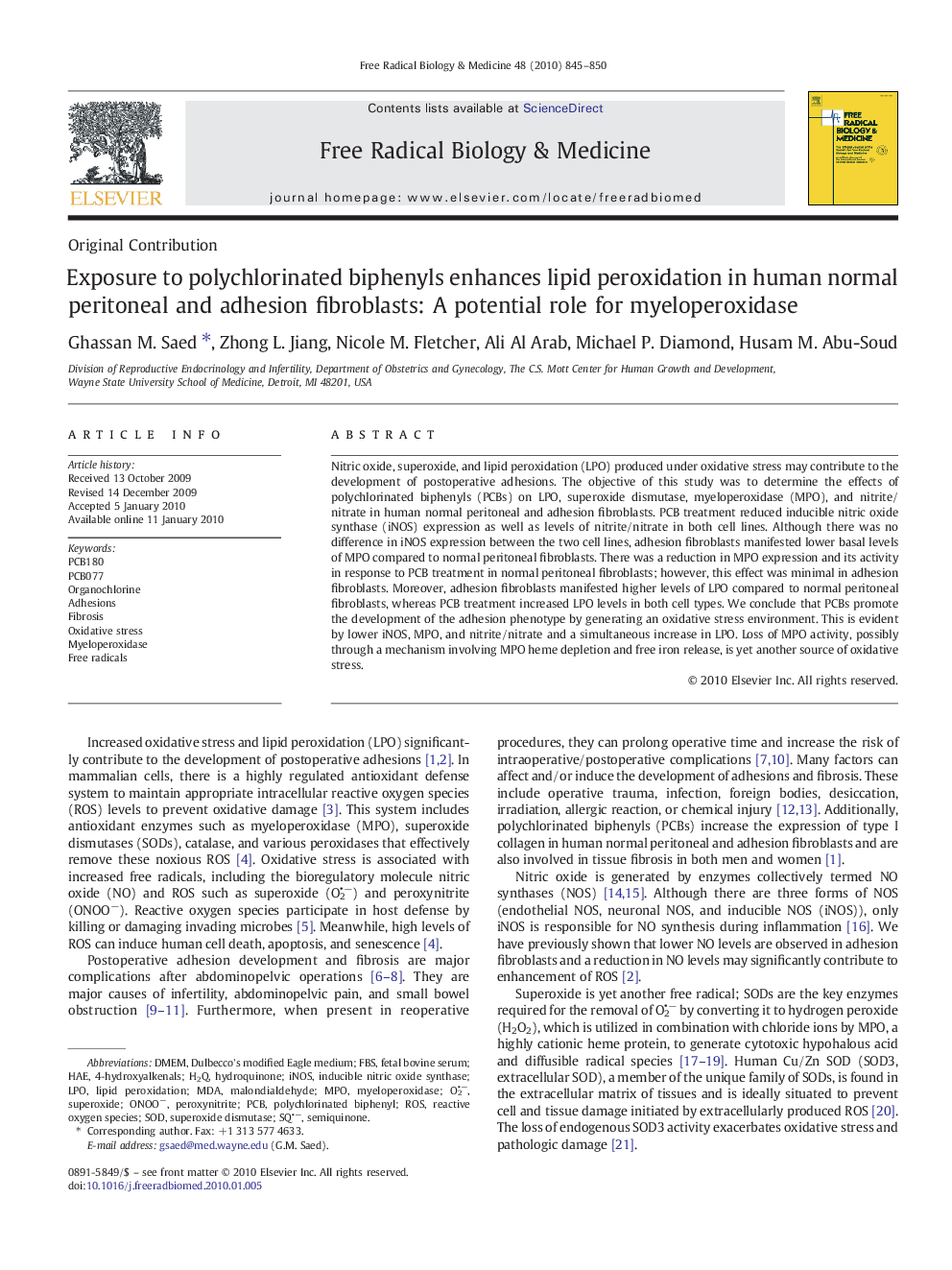| Article ID | Journal | Published Year | Pages | File Type |
|---|---|---|---|---|
| 1909844 | Free Radical Biology and Medicine | 2010 | 6 Pages |
Nitric oxide, superoxide, and lipid peroxidation (LPO) produced under oxidative stress may contribute to the development of postoperative adhesions. The objective of this study was to determine the effects of polychlorinated biphenyls (PCBs) on LPO, superoxide dismutase, myeloperoxidase (MPO), and nitrite/nitrate in human normal peritoneal and adhesion fibroblasts. PCB treatment reduced inducible nitric oxide synthase (iNOS) expression as well as levels of nitrite/nitrate in both cell lines. Although there was no difference in iNOS expression between the two cell lines, adhesion fibroblasts manifested lower basal levels of MPO compared to normal peritoneal fibroblasts. There was a reduction in MPO expression and its activity in response to PCB treatment in normal peritoneal fibroblasts; however, this effect was minimal in adhesion fibroblasts. Moreover, adhesion fibroblasts manifested higher levels of LPO compared to normal peritoneal fibroblasts, whereas PCB treatment increased LPO levels in both cell types. We conclude that PCBs promote the development of the adhesion phenotype by generating an oxidative stress environment. This is evident by lower iNOS, MPO, and nitrite/nitrate and a simultaneous increase in LPO. Loss of MPO activity, possibly through a mechanism involving MPO heme depletion and free iron release, is yet another source of oxidative stress.
